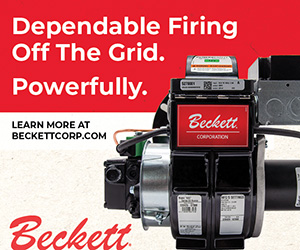
Distributors Bridge the Space
By Diane M. Calabrese / Published March 2019

D
istributor’s Viewpoint
The best way to get a clear and unobstructed view is to choose a good vantage—or to ask someone who has one. So what better way to understand the distributor’s viewpoint than to ask distributors what they see when they look across the industry?
For one, distributors strive to foster understanding. It’s a fitting role for them, given they bridge the space between manufacturers and end users.
With their unique position, distributors naturally develop wish lists. What’s interesting is how their wishes echo those in other sectors where no one quite understands what the role of the person in the middle is.
We have all heard people complain about the cost of a hospital stay, while at the same time expecting superb and professional care during that stay. Yet medical providers are striving to give patients the best care. So it is with distributors serving their customers.
“Most distributors want to give contractors the best price they can, but distributors have to live, too,” says Linda Chambers, brand and sales manager at Georgia Chemical Equipment in Norcross, GA. She goes on to explain the balance that distributors must strike.
“Many single mom-and-pop companies cannot compete with online merchants due to overhead and not being able to get the big volume discounts from vendors,” says Chambers. “So understand when you pay a little more for an item with your local vendor, they will be the one that is there for you day in and day out—not the online company.”
The immediate ties distributors have to customers allow them to contribute to innovations. “Manufacturers test new equipment before putting it on the market and representing it in their line of equipment for distributors to sell,” says Roy G. Chappell, CEO of Chappell Supply and Equipment in Oklahoma City, OK. “Yet it is up to us as the distributor to truly test the equipment in the field and give feedback to the manufacturer.”
That feedback is often just the sort that will make the equipment better in the long run, explains Chappell. Some of the relay of information from customers comes during an equipment service call.
“Distributors need to be prepared to offer service on the equipment they sell,” says Chappell. They must be able to troubleshoot and repair.
Chappell says that when he started as a distributor 40 years ago, suppliers required a distributor to have training and knowledge before they would ship. “We had to attend a week of classes that offered a plethora of information,” he explains.
A week-long class covered which equipment to recommend for each industry that used pressure washers. From there, instruction moved to “in-depth” sessions on “troubleshooting, testing electrical circuits, and building and rebuilding the pumps and burner,” says Chappell.
“Knowledgeable technicians who get the job solved the first time” are must-have service department team members, says Chappell. “Service technicians will make or break a distributor. I know this from personal experience, and we have paid for it many times. You don’t want your reputation to be known for changing parts out multiple times until the unit is running.”
Solid linkages benefit the customer and the distributor. And distributors form the bonds.
“When you sell a unit to a customer, you need to make sure and train the people on the staff who will be using it or around it—going over dos and don’ts,” says Chappell. “But it doesn’t stop there. After you sell the unit, provide service after the sale.
“Make sure to call or see them every 30 days, especially if they use the unit heavily at 10 or more hours a week,” continues Chappell. “Great customer service with great service technicians will bring in 25 percent of the selling price per year in service, parts, and chemicals.”
Distributors engage with customers every day to help solve problems and are invigorated by the interaction. Helping customers deal with wastewater is particularly fascinating because “no two customers are the same, and every job is custom,” says Chappell.
“Over the years, learning to help customers with wastewater has been trial and error, but we have a better grasp on the industry now,” explains Chappell. “There is a lot to learn, whether it is from collation packs, microbes, enzymes, or other forms of treatment.”
The list of industries requiring assistance with wastewater continues to grow. “They cover a broad customer base including wineries, breweries, engine overhauling, transmission rebuilding, the oil and gas industry, refineries, farm equipment dealers, and beyond,” says Chappell. “It is always something new that challenges and excites us.”
Seeing Results
Being able to work directly with customers to help them find optimal solutions is something Roy Pennington, owner of Hi Pressure Cleaning Systems Inc. in Houma, LA, appreciates. “The best part of being a distributor is when you actually see a customer excited with the product they purchased from your store,” he says.
Distributors have opportunities to help start-up contracting businesses become successful, says Pennington. “Selling them the equipment and service that they need and then steering a cleaning contract in their direction because you can vouch for their abilities and professionalism is a win-win for both of you.”
By taking care to offer customers only quality cleaning systems, distributors fortify the businesses of their clients. Customers must have good support from a dealer. The support not only strengthens the contractor, but it also ensures the customer will be satisfied with the dealer and the dealer’s service.
Pennington explains that there is now a brand of equipment that he refuses to service because the craftsmanship and components are of such low quality. Having done repairs on the equipment in the past, he knows that it will quickly return for another issue. Customers become frustrated with successive service calls. It’s not a win for the dealer who did not sell the machine in the first place.
Another issue for distributors is customers who turn up with an internet purchase and seek warranty work. Pennington draws a firm line. “We tell them they can drop it off, wait until its turn comes up for repairs and pay our parts and labor, and then they can collect the warranty from the manufacturer.”
Pennington asks in one of his ‘sold on hold’ phone messages why a customer would ever buy a pressure washer from a store that does not offer parts and service. “Would you buy your new car or truck from a dealership that does not have a service department?” he says. “Of course not.”
Adapting and Tempering
Distributors must adapt to remain successful. What worked yesterday may not work tomorrow or even today, says Pennington, who notes the extinction of dinosaurs that could not adapt to changes on this planet.
With the internet, explains Pennington, the role of being an equipment dealer has changed. “It is critical that every customer be shown and reminded how important they are to our success.”
Pennington emphasizes that he means every customer. “Whether he just needs a QC O-ring or a gallon of degreaser, it is imperative that he knows he is appreciated and his support is important to me,” he explains. Failing to establish a personal connection, a distributor may inadvertently give a customer an incentive to shop via the internet from consolidators such as Amazon and eBay.
Because of the allure of the virtual world, distributors must quietly suppress their immediate reactions to some comments by prospective customers. To say anything too hastily might cause what Pennington calls a “customer-distributor train wreck” at the first meeting.
Although Pennington says it can make one angry to have a would-be buyer proclaim that a pressure washer “just like it” can be had for significantly—even a third—less, try to be respectful instead and take the opportunity to educate the individual. Remind a buyer what the purchase includes—most especially the distributor’s prompt attention should there be a mechanical issue with the machine while in the middle of a job.
Distributors are the frontline partners of contractors. It cannot be overemphasized. (We could go back to our analogy of medical care, but simple enough to ask whether you really want to be diagnosed via the internet if you think your heart is wavering—never mind getting that virtual appendectomy.)
One of Pennington’s “best and most valued customers” is a national company with a high-profile contact. When the customer bought equipment from his company, the company’s corporate evaluators were not happy because Pennington’s equipment did not come in as the low bid.
“Local management pushed hard enough, and we did get the sale,” says Pennington. “We do regular preventative maintenance on their equipment.” And they get priority service on their equipment if there are issues, which inevitably arise on machines that log thousands of hours.
“Yes, they paid a bit more on the front end, but our service has demonstrated the value of having a great distributor backing the manufacturer’s equipment,” says Pennington. That sums it up.
Distributors genuinely enjoy the niche they fill—a knowledgeable, dedicated nexus between contractor and manufacturer.





